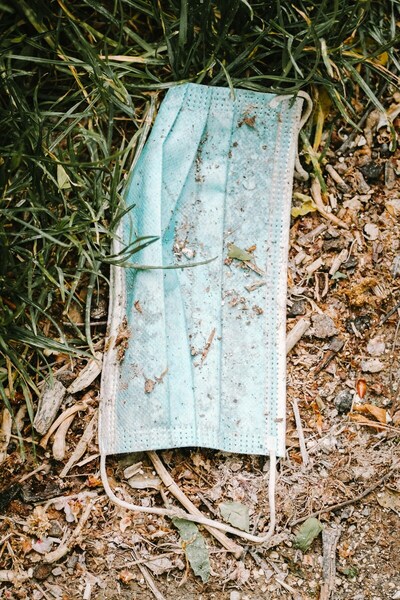Behaviors and attitudes concerning disposable masks and the environment: A D.C. high school case study
(1) Sidwell Friends School, (2) Upper School Science Department, Sidwell Friends School, (3) Earth Commons Institute, Georgetown University
https://doi.org/10.59720/23-194
Disposable masks became increasingly prevalent during the COVID-19 pandemic resulting in their ubiquity in the environment. Looking back at the pandemic reveals how disposable masks that end up in our environment consistently and negatively impacted species’ health. Disposable masks shed microplastics, a microscopic form of synthetic material that can contain heavy metals and other hazardous chemicals, including endocrine disruptors, which have negative impacts on the health of humans and other species in the environment. This study explores the trends in disposable mask litter in the Northwest Washington, D.C. area, and behaviors and individual approaches to handling the disposal of masks by high school students. We conducted a study of mask litter in the Northwest D.C. area via a qualitative survey of D.C. high school students and a quantitative survey of mask usage among students. Additionally, we collected data on disposable mask litter in Northwest D.C. to quantify abundance in the region. Disposable masks found in the study area may contribute to some adverse ecological effects in the local community. This study contributes to the knowledge of mask litter, specifically on the mask disposal habits of an urban high school student body during the pandemic. We hypothesized that disposable mask litter resulted from individual actions due to a lack of awareness about environmental pollution. Our results showed that individual actions did play a large role in generating disposable mask litter. We aim to bring awareness of improper mask disposal and the associated environmental pollution to the forefront of students and residents of the D.C. area.
This article has been tagged with: